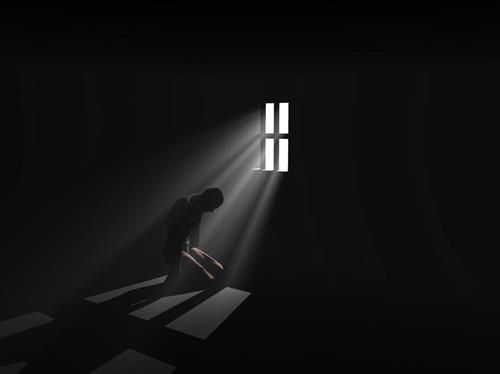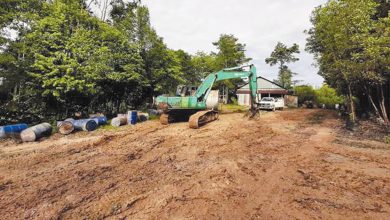How well do you know your neighbour?


By Mariam Mokhtar
Do you get on with your neighbour and regularly exchange pleasantries? Do you have one of those neighbours, whose curtains keep twitching, indicating that they are keeping tabs on you?
Are you on good terms, and keep an eye on one another’s homes when one of you goes away? Are you in a neighbourhood, where people haven’t got a clue who lives around them?
Recently, Malaysians were horrified to read about the discovery of two disabled and mentally challenged people being confined to their rooms. Only the naïve will think these are isolated cases. They are not. These cases are probably the tip of an iceberg.
Perak will not be spared either. In some dark corner, a disabled person is probably in a state of neglect, awaiting discovery or permanent release from their suffering. We may lead modern lives, but our attitudes towards the disabled and mentally ill, are still steeped in the past. Once, families with a disabled member, felt ashamed and would hide the disabled person in a back room.
If one needs proof that we mistreat the disabled, one need only observe the behaviour of the general public towards wheelchair users. Rude people stare at the disabled, instead of helping them.
Last month, during a raid to weed out illegal immigrants, immigration officers stumbled upon a 15-year-old teenager who had been locked away in the storeroom of a flat, in Nilai, Negri Sembilan. He has cerebral palsy, was malnourished, emaciated, filthy and uncared for.
News of this discovery was still sending shockwaves among Malaysians, when a few hundred miles away, in Kampung Pasir, Pekan Hulu, in Tumpat, Kelantan, welfare workers, released a 44-year-old woman with mental health problems, from a locked room.
The teenager is Muhammad Firdaus Dullah. He had lived in the storeroom for at least two years. In the latter case, the woman, Nasitah Yahaya, had been locked up in a tiny, darkened room, for the past decade.
The main carer for the teenager, was his mother, a Sabahan, who had recently miscarried, whose first husband had died and whose second husband had left her. As a single mother, without support from her own family, she was forced to hold-down two menial jobs, which took her away from her sons (Firdaus has a half-brother) for most of the day. Try to imagine how you would cope in her circumstances.
The death of Nasitah’s parents shifted the burden of care, to her siblings. Initially, they took turns, shunting her from house to house, in three different towns in Kelantan, Penang and Kuala Lumpur. Eventually they lumbered her onto a step-brother. As he could not manage, he locked her up in a tiny room, under his house.
The public is cruel to criticise both Firdaus’ mother and Nasitah’s step-brother, without acknowledging their circumstances. Not everyone is educated or knowledgeable or knows where to seek assistance. The burden of looking after the disabled, especially if only one person is lumbered with the responsibility, saps one’s energy. Without support from family, they will fail.
If anecdotal evidence is to be believed, getting aid from the government is difficult. There is a lot of form filling, and stringent criteria must be met. What happens if the recipient, or his guardian, cannot read or write? What if the guardian or parent cannot take time off from work, to enable him to register for help? What if the guardian is unable to find someone to take care of the disabled person, whilst he visits the social welfare department?
One carer said, “I was confused by all the form filling, and gave up halfway.” Another said that despite living in a dilapidated shack, the authorities still viewed his hovel, as a dwelling, and he found himself ineligible for aid. One parent of a disabled child said that they had a motorcycle (kapchai), but ownership of the vehicle meant that they were not poverty stricken and aid was refused.
Both Firdaus’ and Nasitah’s guardians expressed relief that the ordeal of looking after their disabled family members was finally over. Firdaus’ mother admitted that she “did not understand the process of getting help”. Similarly, whilst Nasitah’s step-brother acknowledged the public’s anger, he said, “They (his siblings) left her under my care but…I didn’t know how to get help from the Welfare Department.”
These two carers have said that the process of registration and receiving aid, is not well-publicised. This is a clue that the system could be improved and made more accessible.
That is not the end of the story. In Firdaus’ case, the neighbour’s children claimed that over the past two years, Firdaus’ mother had prevented them from playing with him. One child admitted he heard wailing, from the flat.
Why did the crying not alert Firdaus’ young friends, or their parents, to make enquiries about Firdaus? Similarly, Nasitah must have had neighbours who could have asked after her.
The non-prying nature of these communities is uncharacteristic of most kampong communities. Why did no one, neighbour, or relative, alert the authorities to help the disabled person? Were they afraid that reporting to the authorities would be seen as a betrayal?
Firdaus’ and Nasitah’s suffering could have been shortened, medical help given, and welfare aid extended, if only their neighbours had not been so apathetic.


